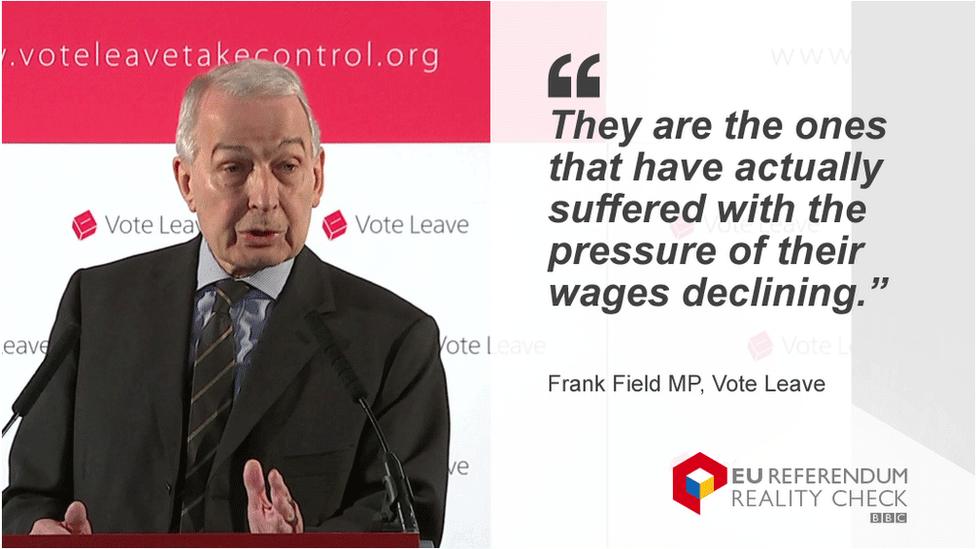Reality Check: Would Brexit lead to a rise in wages?
- Published

The Claim: Leaving the European Union would lead to an increase in wages, especially for low-skilled or semi-skilled workers.
Reality Check verdict: It is possible that curbs on immigration would increase wages a little, but that effect is likely to be dwarfed by what happens to the economy as a whole.
Frank Field, one of the few Labour MPs supporting Vote Leave, was talking on Tuesday about how traditional Labour voters have been the ones hit by immigration from the European Union.
"They are the ones that have actually suffered with the pressure of their wages declining," he said.
There was a paper from the Bank of England, external last year that investigated the question of whether immigration reduced wages.
It found that the area in which there had been the greatest effect on wages had been for semi-skilled and unskilled workers in the services sector, where a 10 percentage point increase in the proportion of immigrants working in the sector would be associated with a 1.88% reduction in pay.
A 10 percentage point increase in immigrants working in a sector is a lot. The latest labour market figures, external from the Office for National Statistics estimated that between 1997 and 2015, the proportion of non-UK nationals working in the UK rose from 3.8% to 10.2%, an increase of 6.4 percentage points over 18 years.
So if immigration in the past led to a small reduction in wages, could we say that leaving the EU would lead to a rise in wages?
Sir Stuart Rose, the former Marks and Spencer boss who heads Britain Stronger in Europe, was asked by a parliamentary committee whether ending free movement would lead to a rise in the wages of unskilled workers and said: "If you are short of labour, the price of labour will go up."
His economic theory here is correct, but it assumes that all other factors remain equal.
Last week's Treasury analysis predicted that leaving the EU would lead to higher unemployment (partly due to productivity effects) than would be the case if we stayed in. Higher unemployment tends to reduce wages.
Another thing that affects wages is the overall strength of the economy. The size of impact on economic growth that has been predicted in recent weeks would be likely to dwarf the immigration effect.



- Published22 February 2016
